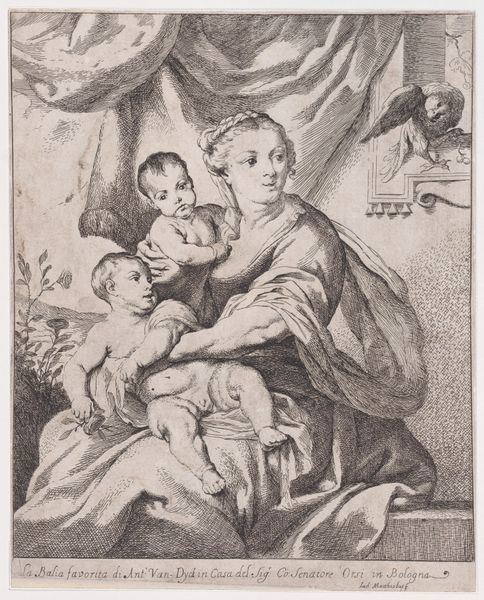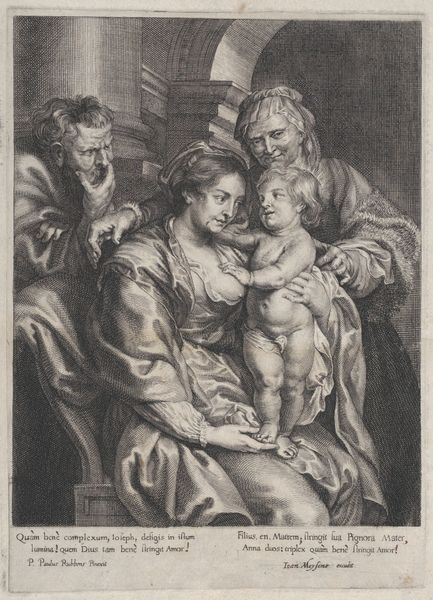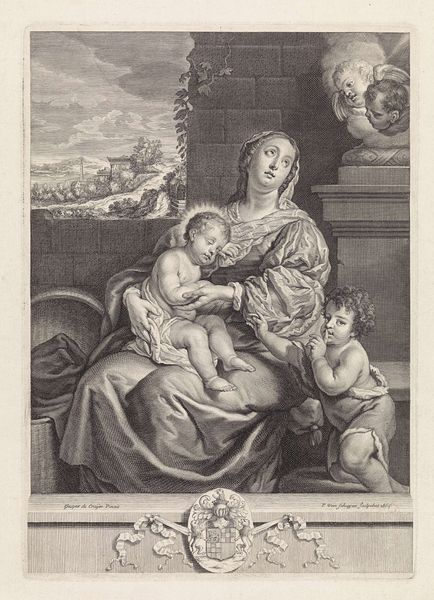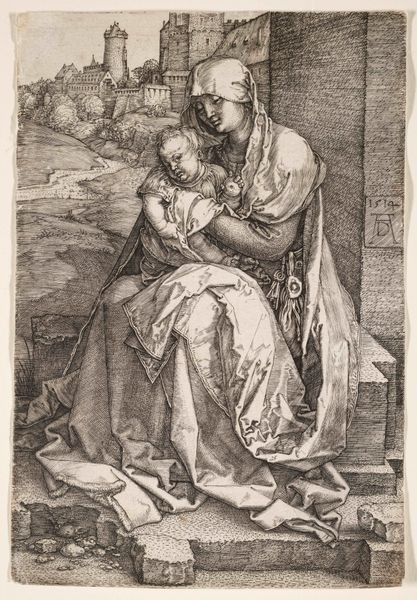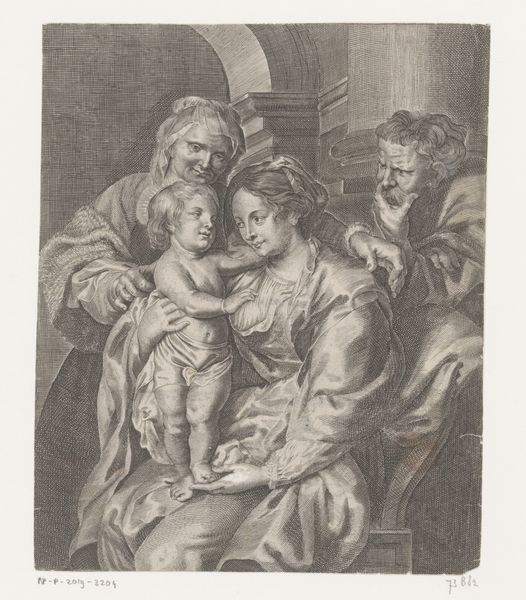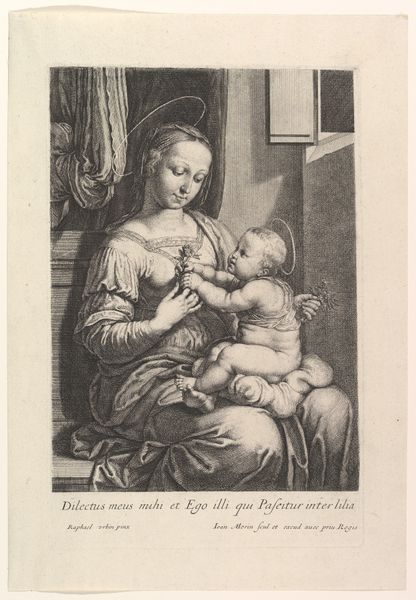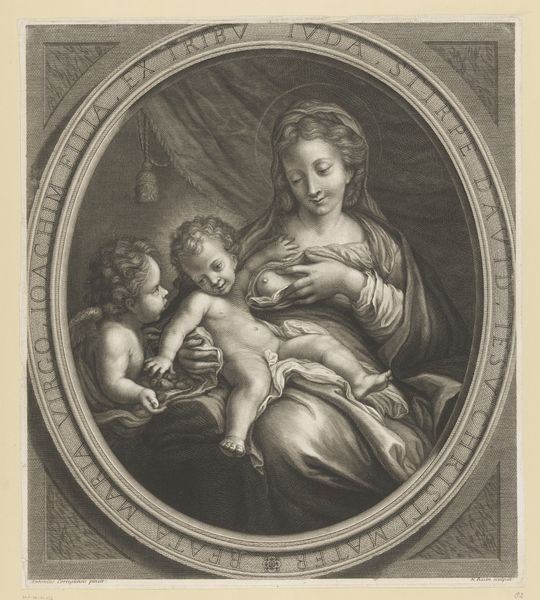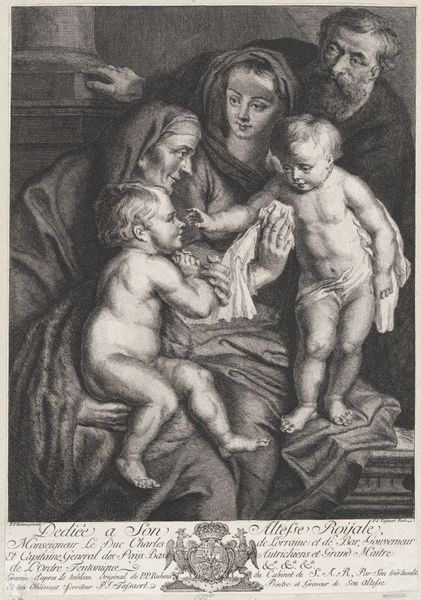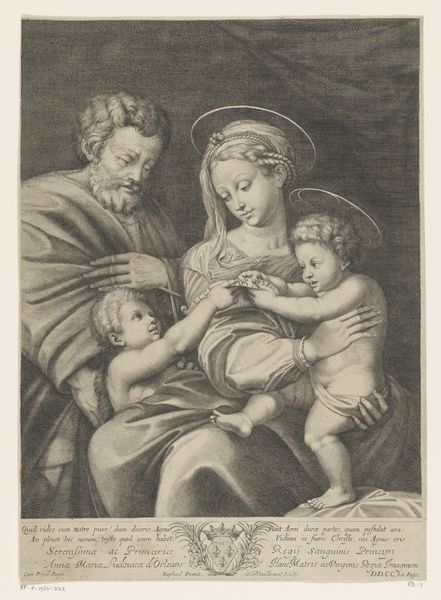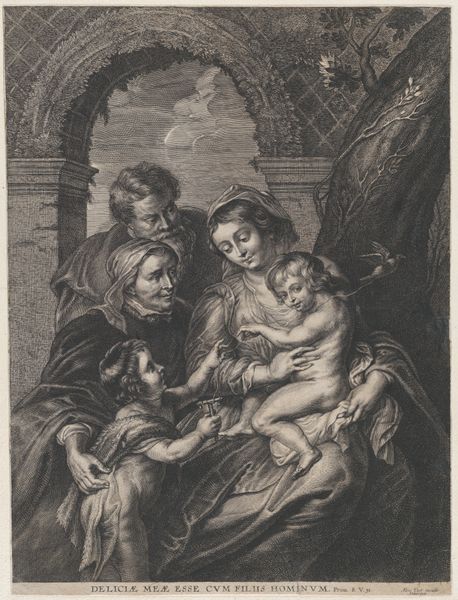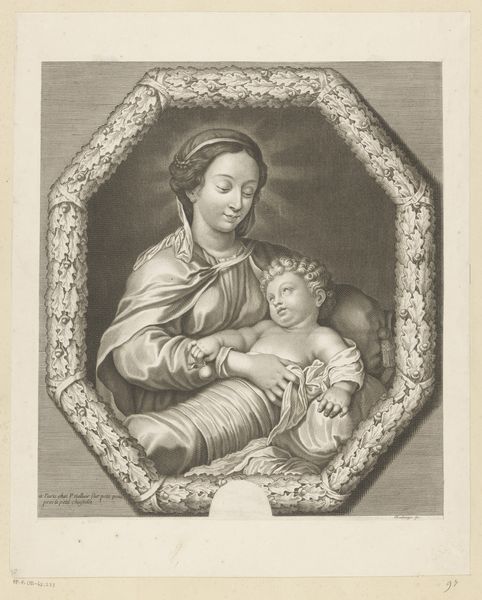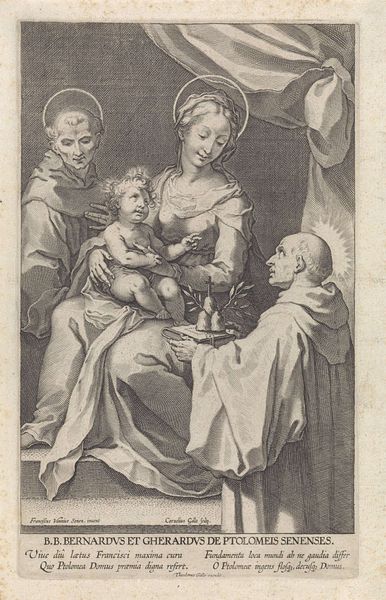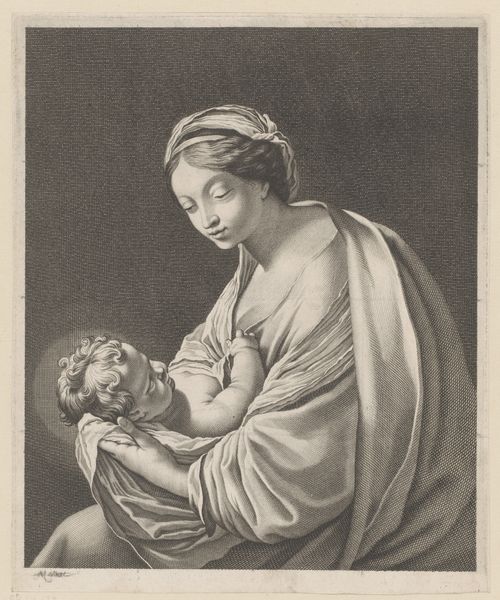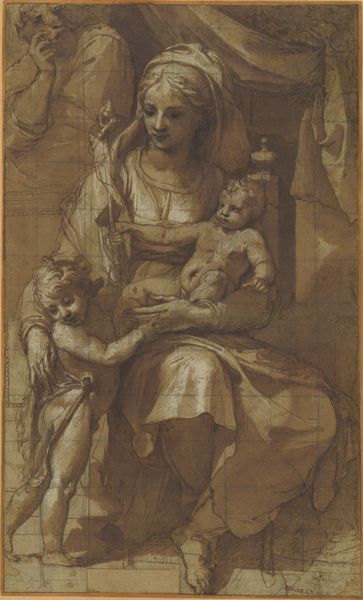
Madonna and Child before a Curtain 1625 - 1674
0:00
0:00
drawing, print
#
portrait
#
drawing
#
baroque
# print
#
madonna
#
child
#
portrait drawing
#
history-painting
Dimensions: Sheet (trimmed): 7 7/8 × 6 5/16 in. (20 × 16.1 cm)
Copyright: Public Domain
Editor: Here we have Louis de Boullogne the Elder's "Madonna and Child before a Curtain," created sometime between 1625 and 1674. It’s a print, so it’s interesting to see the details achieved with this medium. The contrast of light and shadow really stands out to me. How do you see this piece through a formalist lens? Curator: I am immediately drawn to the interplay between line and space, the delicate web of hatched lines that defines form. Note the dynamic tension created by the composition. The figures of Madonna and Child are positioned asymmetrically, yet they achieve a certain visual balance within the rectangular frame. What does the positioning of the figures suggest to you? Editor: It feels intimate, but also staged, like a formal portrait. The curtain backdrop reinforces that. Is there any significance to the stark contrast between the figures and the background? Curator: Precisely. The background, while seemingly simple, serves as a grounding structure. See how the parallel lines of the curtain both frame and flatten the pictorial space. The halo effect radiates energy that contrasts the relatively unadorned curtain, adding spiritual dimension. Does the materiality of the print medium influence your reading of the subject matter? Editor: Definitely! The lines are so precise. It creates a sense of order and control, even within a religious subject matter usually associated with faith and mystery. It's as though the artist is presenting an argument through composition, light, and line work. Curator: Indeed, and by observing the line, shape, form, and the contrast, it seems Boullogne successfully transformed this work through careful balance to convey his intentions. Thank you for pointing out details of the staging; it greatly assists analysis of intention and reception of the image. Editor: This has really changed how I look at prints; there's so much intention in these formal choices.
Comments
No comments
Be the first to comment and join the conversation on the ultimate creative platform.
